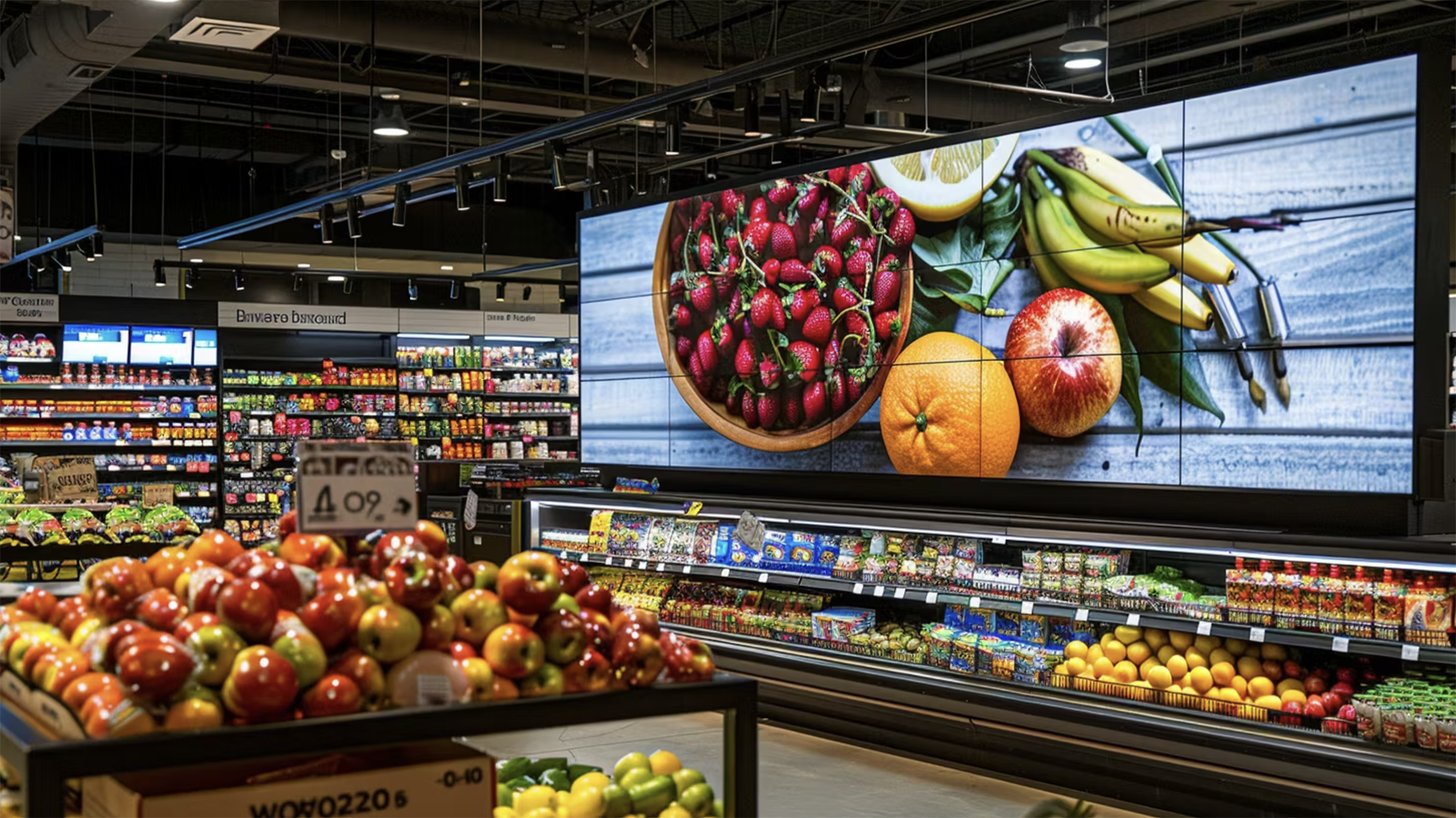Green and Profitable: Role Grocery Retailers Play In Embracing Sustainability Metrics
.png)
At a Glance
- Grocers can differentiate themselves by proactively embracing sustainability metrics, appealing to eco-conscious consumers.
- Sustainable metric compliance positions grocers ahead in environmental regulations, minimizing legal challenges and reinforcing a commitment to ethical practices.
- Grocers play a crucial role as industry leaders when adopting sustainability metrics as standard practices.
- 78% of grocers believe sustainable practices will help them differentiate from the competition.
In today's world, sustainability has become more than just a buzzword; it's a fundamental necessity. The pressing environmental challenges we face have elevated the importance of sustainable practices in all aspects of life, and consumers are now more conscious than ever of the impact of their choices. In this context, grocery retailers have assumed a pivotal role in meeting these consumer expectations and leading the charge toward a greener and more responsible future. This transformation is facilitated through the adoption and implementation of sustainability metrics.
The Rise of Sustainability Metrics in Grocery Retail
The need for sustainability metrics in the grocery sector arises from several factors. Firstly, as highlighted by The Carbon Trust in 2020, consumers are increasingly supportive of 'carbon labelling' on products. This means consumers want to know the environmental impact of the products they purchase, including their carbon footprint. Terms like 'Product Carbon Footprint' (PCF) have gained prominence, representing the total carbon emissions of a product over its entire lifecycle.
Why Grocers Should Embrace Sustainability Metrics
Consumer Demand - Consumers are more environmentally aware than ever before. They want to make responsible choices, and they rely on retailers to provide information about product sustainability. By offering this information, grocers can meet customer expectations and build trust.
Competitive Advantage - Retailers who proactively adopt sustainability metrics gain a competitive edge. Sustainability-conscious consumers are more likely to support businesses that align with their values.
Regulatory Compliance - Environmental regulations are becoming stricter. Compliance with sustainability metrics can help grocers stay ahead of potential legal issues.
Resource Efficiency - Sustainable practices often lead to resource savings, such as reduced energy consumption and waste reduction, which can improve cost efficiency.
Grocery Retailers as Agents of Change
Grocers are powerful agents of change in the grocery sector due to their control over the supply chain. They can influence manufacturers and suppliers to adopt sustainable practices. As retailers lead the way, consumers are more likely to follow suit, supporting sustainable changes and becoming more loyal to brands that prioritize sustainability.
Influence Over the Supply Chain - Grocery retailers, given their position within the supply chain, hold a significant degree of influence over both manufacturers and suppliers. This influence extends to product sourcing, packaging choices, transportation methods, and more. By pushing for sustainability throughout their supply chain, retailers can catalyze positive changes that resonate throughout the industry.
Loyalty and Brand Reputation - Grocers that embrace sustainability metrics not only attract new customers but also foster loyalty among existing ones. Consumers are more likely to support and remain loyal to brands that share their environmental values. A retailer's commitment to sustainability can significantly enhance its brand reputation.
Educational Role - Beyond offering sustainable products, retailers can also play an educational role. By providing information on product eco-impact, carbon ratings, and sustainability metrics, they empower consumers to make informed choices. This educational aspect is crucial in helping consumers understand the environmental impact of their purchases.
Driving Sustainable Practices - 78% grocers believe and advocate for sustainable practices within their industry as a key differentiator. This includes encouraging suppliers and manufacturers to adopt greener packaging, reduce food waste, and embrace environmentally friendly transportation methods..
Choosing the Right Sustainability Metrics
Grocers must base their assessment frameworks on consumer awareness. Customers care about various aspects of sustainability, including carbon ratings, eco-impact, packaging, ethical sourcing, and product lifecycle. Grocers need to strike a balance between providing comprehensive data and making it accessible and meaningful to consumers.
Some of the key sustainability metrics that grocers should consider include -
- Energy consumption and efficiency improvements.
- Water conservation measures.
- Renewable energy adoption, like solar panels.
- Waste management and recycling programs.
- Ethical sourcing and corporate social responsibility.
- Transportation and supply chain sustainability.
- Employee engagement in green initiatives.
- Consumer awareness and education programs.
- Reduction of food miles and waste.
- Embracing the principles of a circular economy, striving for zero waste.
The Environmental, Social, and Governance (ESG) framework is pivotal for grocers. It encompasses environmental sustainability, social responsibility, and governance practices. Grocers can align their operations with ESG goals to ensure they are contributing to a sustainable future.
Standardized ESG Reporting
The non-profit Ratio Institute's Food Retail ESG Reporting Standard offers a standardized framework for communicating sustainability metrics, best practices, commitments, and progress to investors and stakeholders. Major grocery chains, like Raley's have already adopted such frameworks, further underscoring their commitment to sustainability.
Challenges in Sustainability Metrics
While sustainability metrics are crucial, they are not without challenges. Metrics can vary between organizations, leading to confusion among consumers. For instance, one retailer may use 'A+' as their highest rating, while another uses 'A.' The presentation of complex environmental data in simple graphics can oversimplify the assessment process, potentially lacking clarity and accuracy.
Conclusion
Sustainability metrics are not just a trend; they're the path to a greener future. Grocers play a vital role in this journey by embracing sustainability metrics, adopting ESG frameworks, and leading the way in sustainable practices.


.png)





.png)


